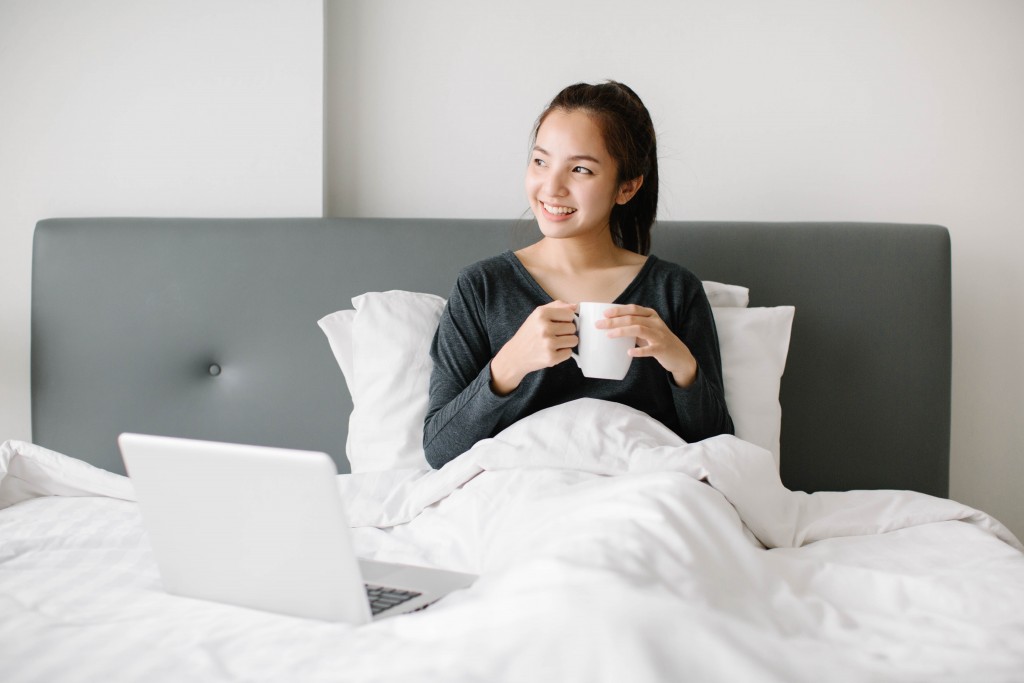Staying at home used to be fun. However, staying at home for weeks or months can negatively affect anyone. And you are not alone. The CDC recognizes the stress that a pandemic can bring. On top of the isolation, there is a fear for your health and family.
Are you cooped up at home on your own? From creating a routine to seeking online counseling, here are some ways to cope with anxiety and loneliness.
1. Accept that isolation can have different effects on different people.
You might be stressed out by being at home all by your lonesome. Meanwhile, your friend is enjoying every minute of it, posting on social media how productive he has become during the pandemic. You might start to doubt yourself and think you are just imagining things.
Do not think that there is something wrong with you (or with your friend). Even the same circumstances can have different effects on people. Isolation can cause depression, and there is nothing wrong with you feeling that way.
Studies have shown that isolation and loneliness can affect an adult person, even his quality of sleep. Social isolation has long been linked to illnesses, such as cardiovascular diseases and poor mental health. The anxieties that loneliness and isolation bring are very real, and they are not just in your imagination. The sooner you accept that what you are going through is real, the sooner you can start to deal with it healthily.
2. Create a familiar routine.
Before the whole pandemic started, you had a routine that made you feel comfortable. You woke up at seven in the morning, took a quick shower, had breakfast, and drove or walked to work. You worked until five, went to the gym, had dinner with friends, then went back home.
A daily routine creates a structure in your life and gives you peace of mind. You cannot dismiss the comfort that predictability brings. Spontaneity is fun, but routines are safe and are good for your mental well-being.
Create a routine even if you are at home. Wake up at the same time that you used to. Take a shower even if you will be staying at home. Have a healthy breakfast and drink your dose of caffeine. Since you will have more time before you start your work, you can insert some activity that can engage your mind and prepare for work. Read a book or watch the morning news. If you used to have lunch with your best buddy at work, you can connect through Zoom and have a virtual lunch date.
After work, if gyms are still closed in your area, work out at home. Maintaining a semblance of your routine can help you cope with isolation and loneliness. It gives you something to expect and to look forward to.
3. Go out once in a while (if allowed).
Get out once in a while, preferably during off-peak hours. If you have a balcony, go and stretch those limbs and absorb some healthy dose of vitamin D. Sunlight can help you fight off depression. Follow physical distancing and health protocols like wearing a face mask when you go out. Just do not go far out to stay on the safe side.
4. Start a project or a hobby.

Taking the commute from your routine can save you lots of time. Start a personal project that you wanted to do but just did not have the time. It can be as simple as setting up your gaming station or setting up a shelf for your books or action figures. Start a hobby. It can even be as fun as finishing the role-playing games you have been eyeing.
5. Makeover your place.
Sometimes, the state of your home is to blame. Is it messy? Does it look like a scene where the murderer can just quickly hide the body under all the mess? If it does, then it’s time to clear the clutter. Start with the things that should go to the trash. Do you have bottles of ketchup that have expired six months ago? Do you still have empty bottles of body wash in your shower room? Take out the trash bag and start filling it up. After you have gotten rid of the trash, start decluttering. Let go of old clothes and magazines you will no longer read. Clean up the pile of clothing on your bed. Wash the dishes. The cleaner your home is, the more relaxing it will be.
6. Talk to a therapist.
If you still feel down most of the time and it greatly affects your health, you need to seek professional help. You can talk to a therapist through a private video conference to ensure your safety. With a computer, smartphone, or tablet, you can seek the help of a professional for your anxiety and depression.
You can also take advantage of technology. Call your friends and family or have a video conference with them. Video-conferencing apps were not just made for work. You can also use them to feel connected to your loved ones.

